
8 Recent Nonfiction Books on the Natural World
The first thing I noticed was the return of the bird sounds. While I’ve been trying to come to peace with winter, enjoying walks in blizzards and the cold, I hadn’t realized how quiet winter can be. As my home town starts to thaw (with occasional April snowstorms), there’s bird calls everywhere, even in the middle of the night. How I missed them. It’s fun to watch the trees slowly bud and leaves unfurl as my city wakes up. All of this has shown how much more attentive I have been to the natural world. While I can’t go on hikes in far off places, I can enjoy what’s here around my home.
Part of that appreciation is thanks to my enjoyment of books about nature and animals. While I am definitely partial to books about animals in particular, all of these books make me think deeper about my relationship with the natural world. Questions that run the gamut from what bird makes a queedle queedle sound to what is our relationship to the world? Do rivers and mountains have rights?
Here is a list of eight recently published nonfiction books that explore the natural world, whether it is the tree outside your home or the journeys of salmon upstream to their natural spawning ground.
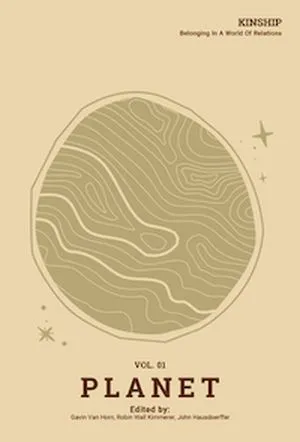
Kinship: Belonging in a World of Relations Co-edited by Gavin Van Horn, Robin Wall Kimmerer, and John Hausdoerffer
The Center for Humans and Nature released this five volume set on Kinship last year. It explores our relationship with the world, between our fellow humans, animals, and plants, and the ground and rivers we live and rely on. Each volume is dedicated to a different theme: Planet, Place, Partners, Persons, and Practice with essays, interviews, poetry, and more. It’s a beautiful and thoughtful series that will have you questioning how you see the world.
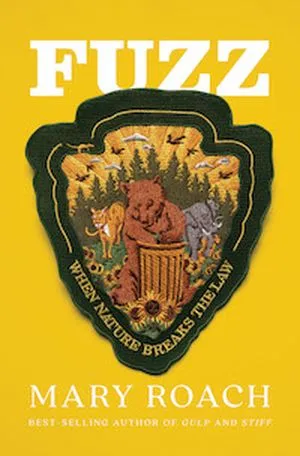
Fuzz: When Nature Breaks the Law by Mary Roach
What do you do when animals break human laws? Or more specifically, what if animals kill people or steal their stuff? Each chapter Roach explores a different facet of animal-law breaking from the most serious crimes — animals killing humans — to rodent pest control. For many situations, there’s a lot of grey area about what is best for everyone involved, humans and non-human animals alike. Of course, at the core is the problem that humans are encroaching more and more on other animals’ habitats resulting in these significant areas of friction. The book has its moments of levity and moments of fascination. For instance, I was pleased to learn that Utah’s state bird is the California Gull because these gulls were said to have eaten a horde of crickets threatening farmers’ crops.

Raccoon By Daniel Heath Justice
Speaking of animals breaking the law, it seems natural to follow Fuzz with Justice’s Raccoon. I think there are two camps of people out there: the people who love raccoons and the ones who see them as pests. Personally, I think they are fascinating, but maybe that’s because I’ve never had to deal with them breaking into my house or garbage bins. Raccoon provides a comprehensive look at these creatures, looking at their role in culture and the natural world.
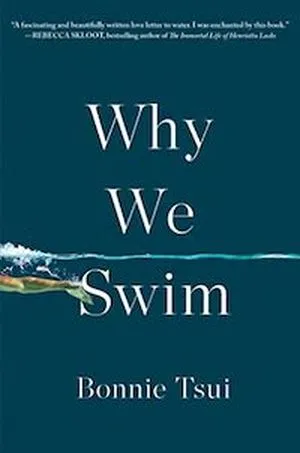
Why We Swim by Bonnie Tsui
I read this one through the Atlas Obscura book club, and I loved it. It’s mostly historical/cultural/biological exploration about why humans swim. There’s a touch about Tsui’s own life as well. We are not necessarily suited for the water in the same way that fish and marine mammals are, but we swim for so many reasons — food, competition, leisure. For anyone who has wondered why we are so attracted to swimming in the wine-dark sea, here’s the book for you.
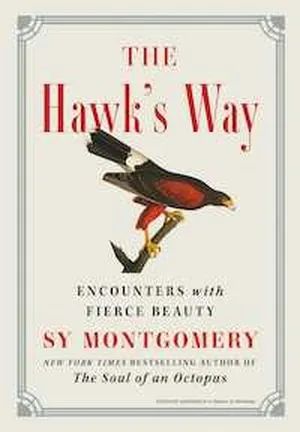
The Hawk’s Way: Encounters with Fierce Beauty by Sy Montgomery
I’m very interested in birds. Montgomery, known for her books on the natural world including The Soul of an Octopus, turns her gaze to the world of hawks. It’s the second in a series on birds called the Hummingbird’s Gift. The book explores Sy’s fascination with hawks, starting with her relationship with a falconer’s Harris’s hawk named Jazz. Through Jazz and her kind, Montgomery explores these magnificent, loyal, and fierce creatures, helping to better understand the natural world.
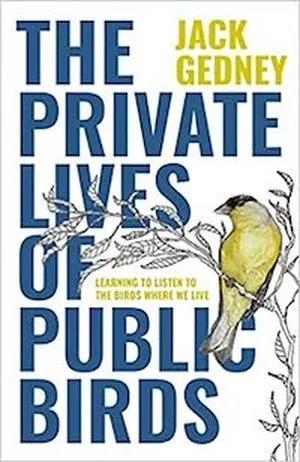
The Private Life of Birds: Learning to Listen to the Birds Where We Live by Jack Gedney
I love the basic premise of the book. Gedney dedicates each chapter to birds that he finds outside his home in California. He explores what makes the bird special, whether its way of relating to other birds of its kind, plumage, or even how fast it flies. Each chapter also has a discussion on how to recognize the bird call. He really makes a case that if we can, we should learn bird calls; sight is not the only way to enjoy the natural world. While I live in the Midwest, there’s definitely overlap with some species. Plus he has given me a great deal more appreciation for birds like mourning doves.
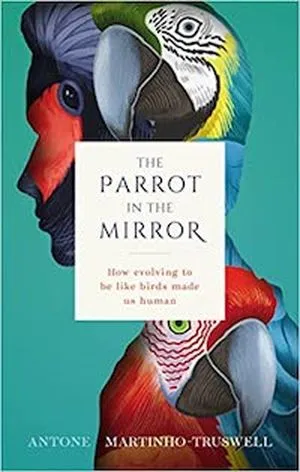
The Parrot in the Mirror: How Evolving to Be Like Birds Makes Us Human by Antone Martinho-Truswell (June 10)
We tend to see humans as distinct from other animals in the world; oftentimes, we seem to forget that we too are animals! But while there’s a lot of literature out there exploring the similarities and differences of humans and other mammals, this book explores our similarity to birds, specifically the parrot. Sometimes comparison helps us see through the facade and allow us to have a better sense of what it means to be a human and an animal in the world.
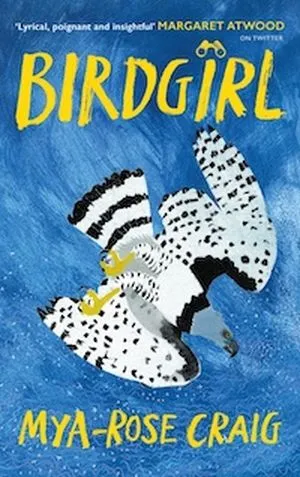
Birdgirl: A Young Environmentalist Looks to the Skies in Search of a Better Future by Mya-Rose Craig (June 30)
While she may be 19/20 years old, she has seen more birds in her lifetime than most people. Mya-Rose, AKA birdgirl, has seen 5,000 types of birds, traveling to every continent to see these incredible creatures. This book recounts her story for these creatures and her desire to see and save them.
I hope these books enlighten you all on how wonderful the natural world can be and how we can think about our relationship with the world. Also, birds are cool.
For folks who want more nature books, here’s a list of nature books for kids and here’s another list of nature memoirs.














